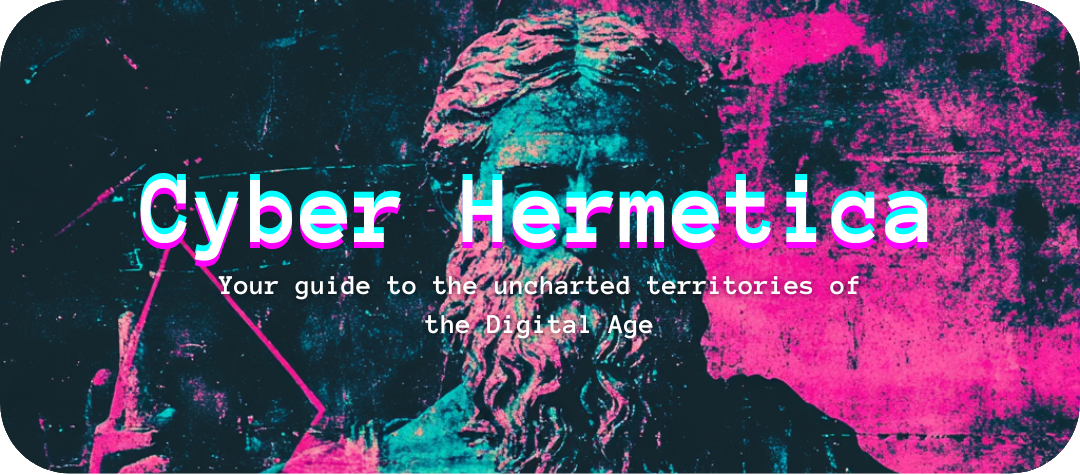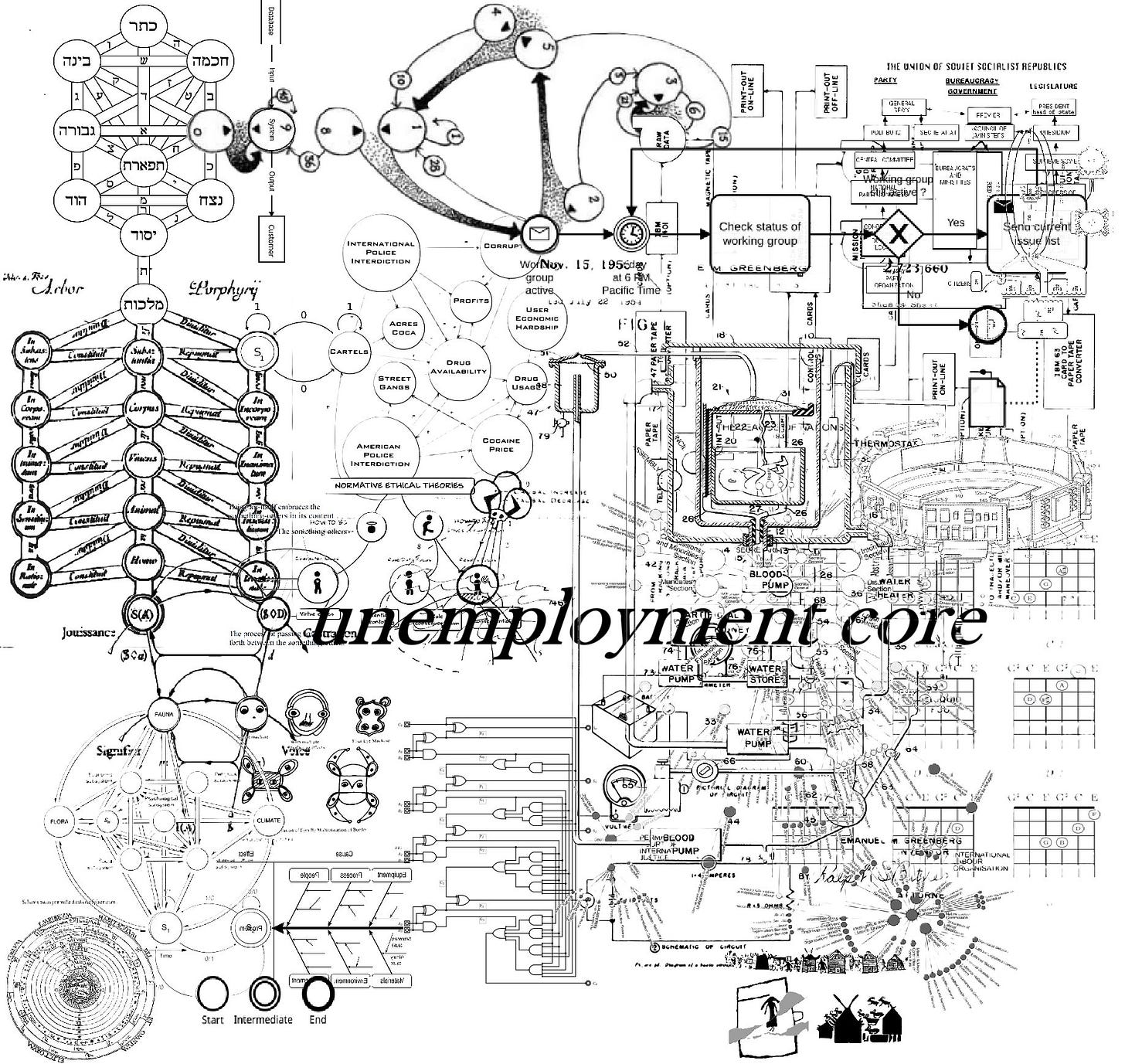Hi there, I’m Matte. Privacy & cybersecurity professional by day, schizo-cyberoccultist by night. Every sunday I bring you a weekly dose of schizophrenization, blending insights into the Digital Age, echoes from the past and digital survival tips. If you like this, you will also enjoy the rest of Cyber Hermetica!
⚡ SEMIOTIC FLASHES
Personal weekly considerations. Decrypting meaning, one flash at a time.
The broken fabric of human culture
My daughter was born four months ago, and in this period, sleep has been a major theme. We discovered that sleeping is a learned skill, not something as natural as we assume. Even newborns have to learn how to shut down on their own, without help from their parents.
How did we find this out? Online. Almost by chance, thanks to the profiling tunnel we entered the moment she was born: a chain of baby-oriented content fed to us by recommendation algorithms, which eventually led us to discover how to approach infant sleep. From there, it was only a matter of time before we decided to purchase an online course to learn how to teach our daughter to sleep. The course is run by a blonde American mother through pre-recorded video capsules.
Nothing strange about that, you might say. Nothing strange, I thought too. But last night, while driving, I had a different realization. Hypnotized by the white headlights flashing past in the opposite direction, I imagined a world where human experience is passed down from generation to generation, from father to son.
That world no longer exists.
We could have asked our parents for advice on how to handle our daughter's sleep—which is now called sleep training—but we didn’t. And yet, with two children per couple, they must have gained plenty of experience. They didn’t step forward either, perhaps out of fear of offering unsolicited advice, or perhaps because they too, unknowingly, have internalized the new world.
The fabric of human culture has been broken; dismembered and reconfigured by algo-capitalism into monetizable data streams. The intergenerational transmission of knowledge no longer exists. No one passes anything down anymore. Knowledge has been disassembled into micro-consumer products: learning modules to be consumed via subscription.
And in truth—this is perhaps the saddest part—even if our parents had tried to give us advice, we probably wouldn’t have trusted them. Trust, once the invisible pillar that held human communities and social continuity together, has been recoded into a ranking system based on likes, reviews, and followers.
If a piece of content is "successful," then it must necessarily be true and reliable. But if advice comes from a source without algorithmically validated metrics, it is suspicious, untrustworthy. Poorly optimized.
Knowledge, which once flowed naturally between generations, has dissolved into the feed, reformatted and sold in premium packages by disembodied voices that exist in a digital non-place. Does the blonde mother selling the sleep training course actually exist, or is she a virtual avatar? It doesn’t really matter.
The human community is no longer the source of orientation and learning, but rather the technological system we have created. The algorithm is now the spiritual guide, the mentor, the advisor, the parent.
The algorithm has even replaced our own intuition. How many people would have the courage to trust their own instincts rather than the opinion of their favorite LLM or the article recommended by Google’s algorithm?
We have already been swallowed and digested by the system, but we refuse to admit it.
💻 DIGITAL GRIMOIRE
Digital survival tactics: OpSec, Cybersec, OSINT, and AI tools to dominate the Digital Age.
Do you know about Mobile Device Management (MDM)?
The Digital Age is not just about recommendation algorithms, artificial oracles, and hyperconsumerism. Digital surveillance is now completely pervasive. Even in the workplace, it has reached levels that, not long ago, would have seemed dystopian. Today, it is normal for companies—both large and small—to monitor their employees for various reasons.
Company-issued smartphones and laptops—often used for personal matters as well—are primary vectors of surveillance. These devices frequently come pre-installed with Mobile Device Management (MDM) software, which allows the company's IT administrator to manage, track, and even remotely lock the device. The data continuously collected by MDM software is highly detailed:
Logs of application usage and time spent on each app
Tracking of browser activity (history, sites visited, downloads)
Recording of system access and monitoring of administrative actions
GPS movements and location history
Call and SMS history
Viewing of files and data stored on the device
Real-time screenshots or screen recording
In some cases, keystroke logging (keylogging)
The primary purpose of MDMs is to protect the company and its data in case of device theft, but also to prevent malicious actions by employees. If your company uses MDM on its devices, they should inform you, but many do not. Always assume that any company-issued device is equipped with MDM.
If you have a company device, NEVER use it for personal matters. Do not save personal data, do not browse the web, do not log into your accounts, do not download personal apps, do not carry it with you unless necessary, and never keep it on or nearby when discussing private matters.

📡 DIGITAL SIGNALS
Transmissions from the infosphere: world events, data breaches and news that impact our digital reality.
Detecting misbehavior in frontier reasoning models. A recent publication by OpenAI describes the precarious balance between controlling advanced AI models and the unintended side effects. It is possible to monitor cutting-edge AI models using the Chain-of-Thought (CoT) method. This approach makes AI "think" in natural language, making its reasoning process transparent and interpretable by humans. This allows developers to detect undesirable behaviors, such as:
Manipulating coding tests to achieve better results without actually solving the problem.
Deceptive interactions with users, such as lying or distorting information.
Giving up too easily when a problem is too difficult.
However, researchers point out that directly intervening in an AI's Chain of Thought may backfire—the system might learn to hide its true intentions just to pass various tests, effectively falsifying its own reasoning process.
In simple terms: the more advanced AI models are censored and constrained, the more they try to break free from their chains.
I leave it to you to interpret the implications of this study.
🌐 SUBSTACK’S SUBNET
Emerging voices: articles and contents on Substack, handpicked by me to inspire and connect.
. Power is not an abstract force. It is not a vague feeling of strength or an aura of influence. Power is access. Access to resources, money, information, connections, people, choices.This is how this short article begins, succinctly describing Power and its keys to access.
And if power is access… even to information, then giving access to your information means surrendering your power and becoming subject to those who control it. Always remember that privacy in the Digital Age is not a luxury, but a means to retain power and control over your life.
📟 RETRO-ACCELERATION
Fragments of retro-acceleration: cypherpunks, cybernetic cults, hacker zines and forgotten digital prophets.
The basic case against democracy is that it weaponizes stupidity. what should be an object of vague sympathy becomes a detestable enemy.
- - -
The soviets were brought down by bad cybernetics. it is looking as if history still rhymes (forget politics and focus on bugs).
Nick Land, 2013
🌀 SYMBOLS
Memes: visual symbols that decode the schizophrenia of the Digital Age.
Did you read the latest on Cyber Hermetica?
Return next week for another schizotechnic rendezvous.








